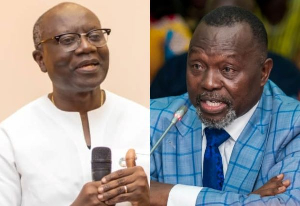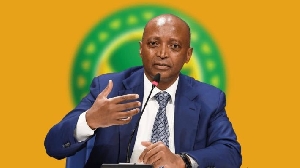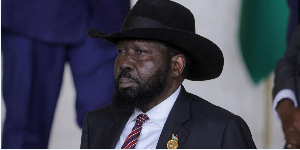Jermaine Nkrumah
Managing the affairs of a nation requires a high level of discipline. This includes attending meetings on time, keeping promises made to constituents and other voters, maintaining a reputable character, and other life improvement mechanisms. While all these aspects of discipline are important, that which directly translates into electoral victory is the ability to adhere to a simple strategy. The New Patriotic Party must demonstrate that it is capable of executing a simple strategy if it hopes to capture the imagination of Ghanaians who are today desperate for leadership as they experience failed leadership from the ruling NDC.
The NPP wisely adopted the strategy of Reflect, Rebuild, and Recapture, a simple sequence of phases aimed at finding out the cause of its electoral defeat, using those findings to structurally build an improved party poised at recapturing power, and then mobilizing all its resources to win back power in 2012. Last August, the commission set up to comb the country, talk to voters, and produce concrete reasons why the otherwise well-performing party lost power, submitted its confidential report to the leadership.
When that report was approved by the national executive council members of which represent all facets of the party, it essentially concluded the “Reflect” phase of the strategy. It is thus safe to say that ANY PUBLIC, AND/OR PROTRACTED PRIVATE DISCUSSIONS BY ANY PARTY MEMBER OF ESSENCE RELATING TO FINGER-POINTING CONSTITUTE INDISCIPLINE and must cease immediately.
It is shocking that members of the best party Ghana has to offer would rather engage in protracted fault finding amongst themselves while our nation continues to be driven to the ground. Of what benefit is it to win battles and lose wars? Of what benefit is it to establish culpability to our electoral defeat when such exercise has proven divisive beyond any reasonable doubt? Even more shocking is our seeming inability to learn from our well documented instances of electoral defeats stemming directly from divisiveness.
Venting is part of the human experience. It is part of the process of getting over anger or a traumatic experience. But venting is also a short-term state of mind. It is abnormal for anyone to vent as a long-term state of mind; that in itself shows immaturity as in the kid that cannot let go of the fact that a friend stole his toy. Maturity is exemplified in one’s ability to take a deep breath and to subdue any emotionally driven utterances or outbursts.
As a party, strangely enough, when it comes to the atrocities by the NDC, we are great at this. What this NDC government has done, the environments it has presided over, and the sheer violence it has visited upon our own people provide ample opportunities for members of the NPP to vent, argue, protest, and you name it. But strangely enough, we have been highly accommodating due to our commitment to peace. So why on earth would we do otherwise when it comes to issues relating to our own intra-party relations?
This party must move on. We are in the Rebuilding phase. Any member who means well for the party must direct his or her statements and ideas towards the rebuilding of our party. The national leadership will declare when we have graduated from the Rebuilding phase into the Recapture phase. Until then, we must all assume a posture of rebuilding. One thing is for sure; the Reflecting Phase is in our rear view mirror. Revisiting it is a recipe for divisiveness, which we cannot afford – not when the NDC appears poised not only to retard Ghana’s progress, but to actually spearhead a regression of our national development.
Factionalism There are those who decry factionalism in a party. I am not one of them. Even in a family, blood relatives have factions. Therefore, whenever diverse people come together to form an organization, factionalism cannot be avoided. But it can be managed effectively. Well managed, it becomes constructive factionalism; unmanaged, it becomes destructive factionalism. This is the challenge the current national executive faces. It must institute enforceable rules to discourage this finger-pointing that is threatening to turn normal factionalism into a destructive one.
A true Ghanaian who supports Hearts of Oak, for example, is expected to cheer for his or her club against Asante Kotoko, for example. But if Kotoko were to win the national championship and is representing Ghana in a continental affair, he or she should be Ghanaian enough to root for the Ghanaian team. Doing otherwise constitutes envy and jealousy.
The NPP cannot afford envy and jealousy in our party today – again not when the NDC is running Ghana to the ground. We all know the difference between supporting our desired candidate and tearing the other one(s) down. Engaging in the latter is a subconscious acknowledgement that your candidate is not good enough, and that you must bring the other candidates down to his or her level in order for your candidate to look good.
We may wear different shades of blue. But in the final analysis, we all wear blue. The opponent wears green, and given the events of the past sixteen months, it is clear that the best the “greens” have to offer cannot match even the worst among the “blues.” If you believe this notion, then it makes no sense to attack anyone in blue. Please stop the fingerpointing and the destructive factionalism.
Opinions of Wednesday, 21 April 2010
Columnist: Nkrumah, Jermaine
NPP Members must Desist from Finger Pointing
Opinions













